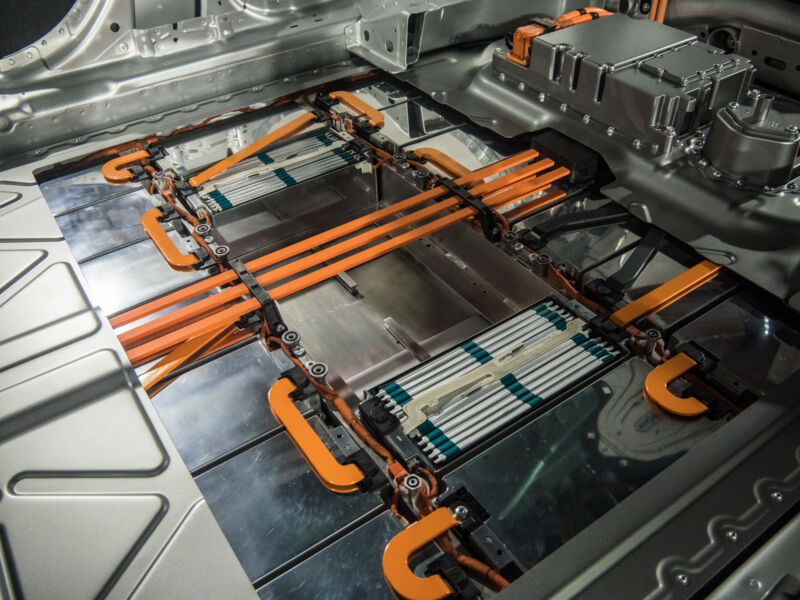fold tab to recall —
The problem is similar to one that affected the Chevrolet Bolt in 2021.

Enlarge / Jaguar sourced the I-Pace’s battery cells from LG Energy Solutions. But now there’s a problem with some of them.
Jonathan Gitlin
The Jaguar I-Pace deserves more credit. When it debuted in 2018, it was one of only two electric vehicles on sale that could offer Tesla-rivaling range. The other was the much more plebeian Chevrolet Bolt, which was cheaper but nowhere near as luxurious, nor as enjoyable to drive. Now, some I-Pace and Bolt owners have something else in common, as Jaguar issues a recall for some model-year 2019 I-Paces due to a fire risk, probably caused by badly folded battery anode tabs.
The problem doesn’t affect all I-Paces, just those built between January 9, 2018, and March 14, 2019—2,760 cars in total in the US. To date, three fires have been reported following software updates, which Jaguar’s recall report says does not provide “an appropriate level of protection for the 2019MY vehicles in the US.”
Although Jaguar’s investigation is still ongoing, it says that its battery supplier (LG Energy Solutions) is inspecting some battery modules that were identified by diagnostic software as “having characteristics of a folded anode tab.” In 2021, problems with LG batteries—in this case, folded separators and torn anode tabs—resulted in Chevrolet recalling every Bolt on the road and replacing their batteries under warranty at a cost of more than $1.8 billion.
For now, the Jaguar recall is less drastic. A software update will limit the maximum charge of the affected cars to 80 percent, to prevent the packs from charging to 100 percent. Jaguar also says that, similar to other OEMs who have conducted recalls for similar problems, the patched I-Paces should be parked away from structures for 30 days post-recall and should be charged outdoors where possible.